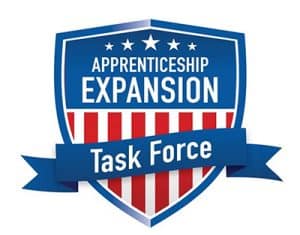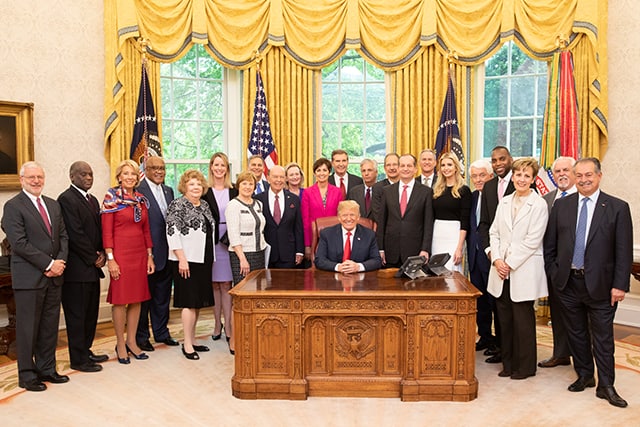Apprenticeships Must Be Expanded to Meet 21st Century Workforce Needs
According to the final report of the Task Force on Apprenticeship Expansion, apprenticeship programs offer workers a career path with paid, on-the-job training and provide employers with highly trained workers, but they are insufficient to address the growing skills gap in many industries. Associated Builders and Contractors (ABC) commended the secretaries of labor, education and commerce for leading the task force comprised of representatives from industry, education and government to generate new ideas to expand the role of apprenticeships and help more individuals achieve the American Dream. The report was presented to the president in a meeting at the White House on May 10.
“The construction industry will certainly benefit from recommendations in this report, including promoting  apprenticeship as a positive earn-and-learn career path, improving the affordability of technical education, focusing on mastery and competency—not just training hours—and expanding diversity,” said Michael D. Bellaman, ABC president and CEO and a task force member. “It was an honor to work with leaders from diverse industries and backgrounds to find ways to expand career opportunities and help every American realize his or her fullest potential, regardless of their access to higher education.
apprenticeship as a positive earn-and-learn career path, improving the affordability of technical education, focusing on mastery and competency—not just training hours—and expanding diversity,” said Michael D. Bellaman, ABC president and CEO and a task force member. “It was an honor to work with leaders from diverse industries and backgrounds to find ways to expand career opportunities and help every American realize his or her fullest potential, regardless of their access to higher education.
Chaired by Labor Secretary R. Alexander Acosta, the task force was created by presidential executive order to identify strategies and proposals to promote apprenticeships in four areas:
-Federal initiatives to promote apprenticeships;
-Administrative and legislative reforms that would facilitate the formation and success of apprenticeship programs;
-The most effective strategies for creating industry-recognized apprenticeships; and
-The most effective strategies for amplifying and encouraging private sector initiatives to promote apprenticeships.
ABC served on two of the four task force subcommittees—those charged with attracting business to apprenticeship and expanding access, equity and career awareness. More than two dozen recommendations were detailed in the report, including:
-Expansion of work-and-learn models
-National recognition and portability of credentials
-Strategies for affordability
-Greater industry and employer involvement
-Streamlined program funding
-Focus on areas of most acute skills shortage
-Raise apprenticeship awareness
-Eliminate operational inefficiencies
-Implement industry-recognized apprenticeship programs
“In construction alone, we need 500,000 workers to fill a backlog of existing jobs,” said Greg Sizemore, ABC vice president of HSE and workforce development, who attended the May 10 meeting with President Trump in the Oval Office. “All Americans should be able to access the training they need to acquire skills that lead to high-paying and fulfilling careers.”







